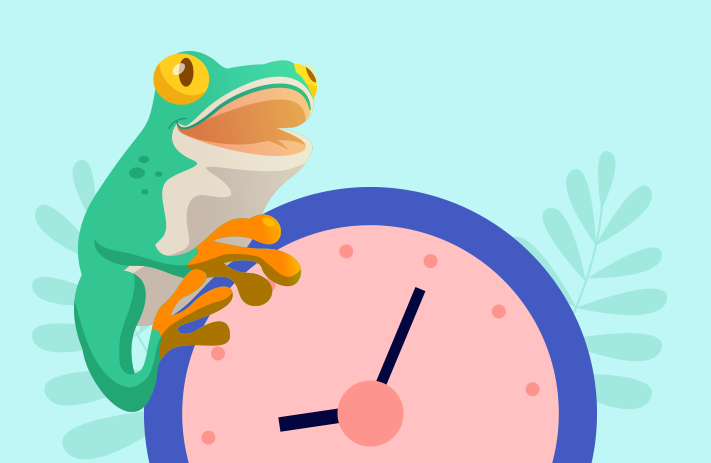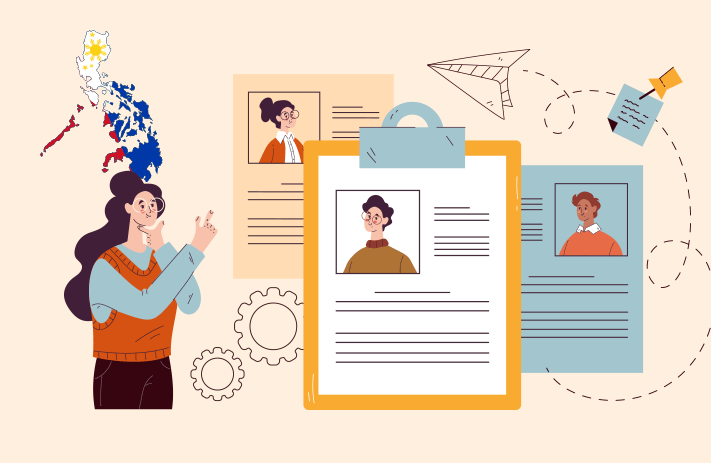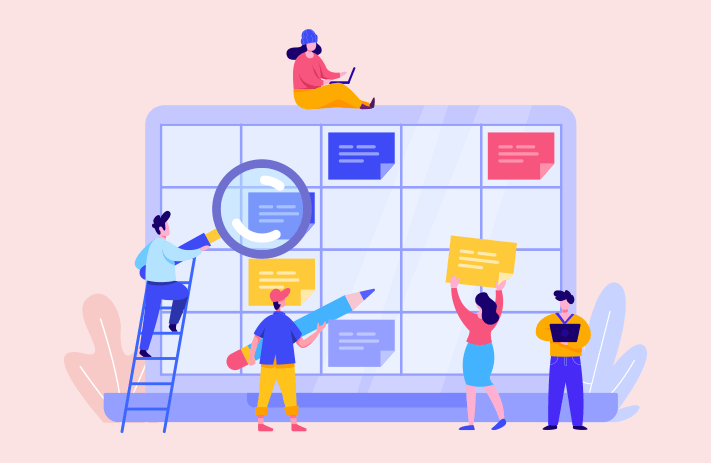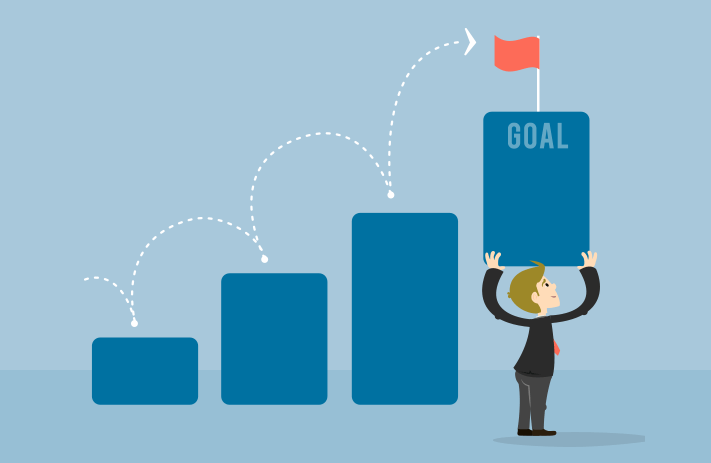
Click the button to start reading
It’s Crunch Time: How Eating the Frog Cures the Loafer in Us All
Renew license plate tabs, schedule dentist appointment, empty inbox, go to gym, call air-conditioner repair, purchase light bulbs: if you’re like everybody else, your daily to-do list includes at least one or two pesky tasks you’d just as soon save for tomorrow.
The problem is, when we delay these things, the issue compounds. And we may find ourselves paying fines for expired car tabs, or facing a crushing inbox on Monday morning.
But juggling the myriad of things to do in our life is no small feat. It’s so easy to become stymied by a difficult task, or else exhaust ourselves playing whack-a-mole without making any real progress towards achieving long-term goals.
Beloved author Mark Twain provided an incisive method for overcoming this tendency to procrastinate:
“Start each morning by eating a live frog, and nothing worse will happen to you that day.”
That is to say, get this dreaded chore over with right out of the gate.
Is this simple practice the elixir to our productivity woes? Perhaps there’s no single cure-all, but eating the frog certainly provides an effective strategy towards prioritizing our to-do lists, bringing balance to our lives, and helping us achieve our goals.
Here are some tips on how and why you want to eat that frog!
Shuffling Priorities
It’s a fact of life that you’ll never get it all done. We’ll always have a stack of books to read, e-mails to send, laundry to fold, and yard work to do. Attempting to pound out every last thing means you’re squeaking in just a few hours of sleep a night.
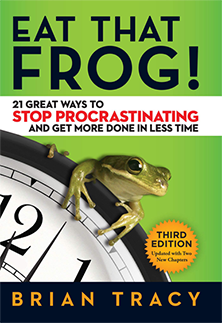
Brian Tracy, author of “Eat That Frog: 21 Great Ways to Stop Procrastinating and Get More Done in Less Time” tells us we need to take a step back from the pile of tasks, and look at the bigger picture.
What are our overall objectives? We can separate these into long-term (five-year) and short term (90-day) goals. He suggests writing the goals down, then identifying each task that needs to be completed in order to achieve them.
This litany of tasks, then, provides the framework for choosing how we spend our time each day.
In looking at the day-to-day, think long-term. Tracy says: “In your work, having a clear idea of what is really important to you in the long term makes it much easier for you to make better decisions about your priorities in the short term.”
For example, if you have a quarterly goal to increase your social media following by 20%, then a daily frog might be writing Instagram captions, or networking on Twitter.
All the other things on your list, unrelated to your long-term goals, are tadpoles. Get them done if you have time, but they’re not critical. The biggest waste of time is to do something well that doesn’t need to be done at all. So no more spending 45 minutes picking out the perfect screensaver!

Maximize the Morning
Eat that frog bright and early. For several reasons, the first hours of the day provide a delightfully breezy window for making decisions, minimizing work-stress, and building a foundation for a productive, fruitful day.
1. Utilize that “Super Brain”
Have you ever been to the grocery store when it first opens? The aisles are empty, and there’s just one or two people at the check out. It feels almost…meditative (ok, I said almost). Come four hours later, it’s bustling with grocery carts and people picking up lunch, talking on phones, and carrying babies.
Our brains are a little bit the same. During the first 2-3 hours of the day, they’re still empty from the quiet of the night.
Business magazine Inc. advises us to save “important decisions for when you feel most alert, generally within one to three hours after waking up.”
By mid-day we have seventeen tabs open in two different browsers, are halfway through two articles, and have notifications going off on our phone and inbox. Not the best state for closing a big deal.
2. Keep Your Output Stress-free
Maximizing this quiet window in the morning keeps us productive without the harry or stress work deadlines bring.
Interruptions, according to the research, are no good. A study on interruptions at work conducted through UC Irvine found that “people compensate for interruptions by working faster, but this comes at a price: experiencing more stress, higher frustration, time pressure and effort.”
That’s not to say you’re not productive at busier times of the day, but that you’re way more taxed getting the same amount of work done.
Simply waking up one hour earlier creates a power hour to produce quality work with minimal stress.
3. Build Momentum
If you’re lucky enough to have a restful night of sleep, then every morning you awaken to sixteen hours of living potential: your day, for the most part anyway, is what you make of it.
The first few hours provide a foundation for what happens later. Your morning sets the tone for the day, and you can see your productivity flourish because of it!
Spending the morning tackling e-mails, for example, can set the ball rolling for a new project. Tasks that require input from several people can be completed in just one day!
Get ‘er Done
Sure it makes sense to eat the frog. But then actually doing it? That’s a different ballgame. It’s pretty jarring to go from a cozy bed to eating a hairy, warty frog in the space of an hour. Even with a few cups of coffee inside you.
Here are a few strategies and tricks to seeing yourself through a difficult task.
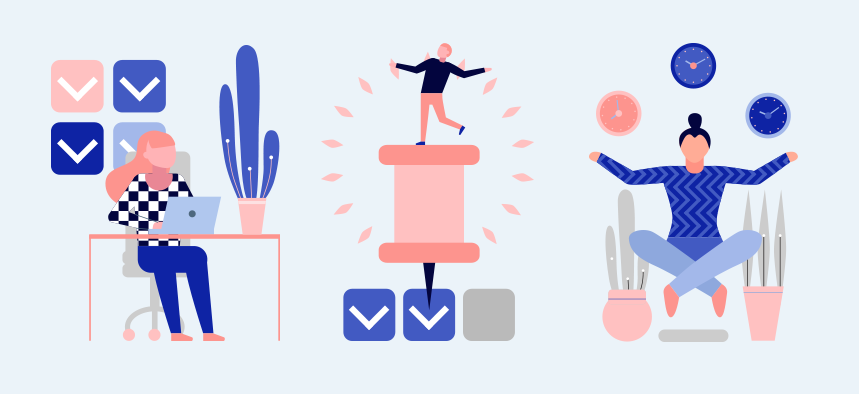
1. Spin that Frog
A task like “call landscaper” or “answer emails” sounds rote and deadly dull. However, identifying what you’re accomplishing puts it in a whole new light. “Beautify my garden” or “build positive client relationships” gives the work more meaning and makes it easier to accomplish.
2. Treat Yourself
Life won’t always give you a pat on the back. Even if you’ve decluttered the desk drawer bulging with bills going back a decade. So take the initiative yourself. Do a little retail therapy on your lunch break. Or shut off the laptop an hour early and make your way to happy hour. Incentives give you the extra push you need to get that annoying task done.
3. Block Time
If you have a certain task to do, schedule out a specific period of time to do it. Plan this time a day or even a week in advance, and add an extra 15-20 minutes so you won’t feel rushed completing it.
4. Create a Distraction-Free Zone
Distractions really zap the precious time we’re allotted each day. Eating the frog isn’t the time for cranking up Pearl Jam or listening to Howard Stern in the background. When you’re buckling down, close your tabs, turn off notifications, and put on noise-cancelling headphones, so you’re laser focused on the work at hand.
5. Bookend Your Day
Close out the night looking over what you have going on the next day. Identify the most important things to get accomplished. This gives you focus right away in the morning. Your brain may even work through some issues while you sleep!
6. Delegate a Few Frogs
You don’t have to eat all the frogs yourself! When deciding what tasks to take on, business management expert Peter Drucker says to ask yourself: “What can I and only I do that if done well will make a real difference?”
You have plenty of critical tasks that require your personal touch. And others, that, well, just aren’t high on your skill set. Determine what only you can do. As for everything else, consider “Upworking” it out!
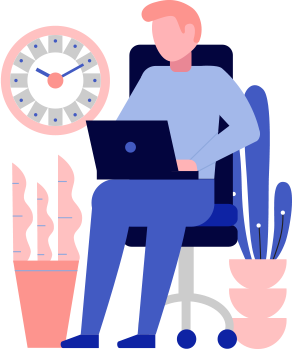
7. Set a Timer
How long does it really take to change that flight reservation you’ve spent the past three weeks putting off? Set the timer for 15-20 minutes then say “go”. You’ll be crossing it off your to-do list and breathing a sigh of relief before you can say “ribbit”.
8. Just Jump In
For certain tasks, there’s no real fix: you just have to leap off the lily pad and into the icy water. The first few minutes are the worst; but after a while you might actually find you enjoy something about even the most mundane activity.
Utilizing these strategies to eat the frog are so worth it. We’ve all had workdays where all we seemed to do was chat away with coworkers. But there’s nothing worse than spending a Saturday afternoon balancing the books when all you really want to do is veg on the couch, binge-watch a Netflix series and eat cheese taquitos.
If you knock off crucial tasks on Friday morning, you’ll feel a flood of dopamine throughout the day that carries you through the weekend.
Eat a Frog a Day?
This all sounds wonderful in theory, but let’s get real. Some mornings, just getting out of bed before 7 am takes an act of God. And we’re not about to change a flat tire, even if we’ve coddled ourselves with a donut and a salted caramel latte.
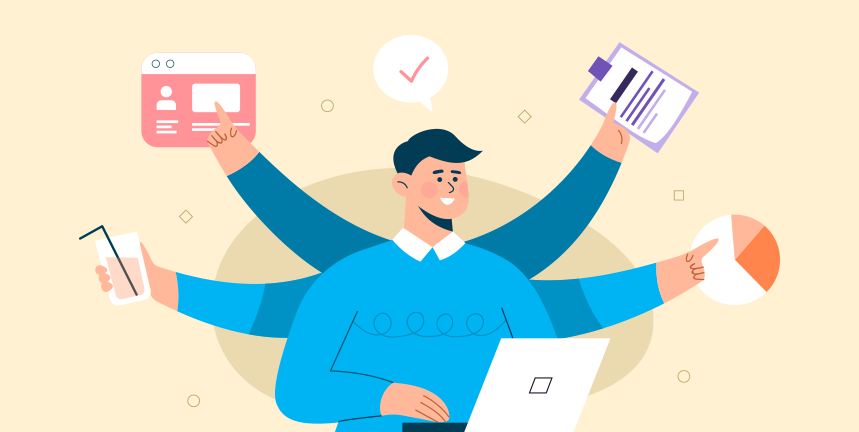
Maybe our system just isn’t designed to consume a frog every day. David Stiernholm of the podcast “Done” suggests an alternative theory of productivity. By completing some small simple tasks (tadpoles) first thing, we lighten our work load and are able to give undivided attention to the bigger, more daunting task of the day.
He suggests putting two images at your desk: one of a frog, the other of several tadpoles. Then, as you’re starting your day, gauge your mood and the work at hand to determine which approach suits the moment.
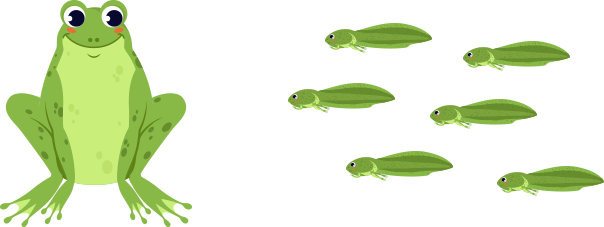
Finished in Two Bites
From frog legs, to alligator tails, to escargot, barbecued beetles or chicken feet, what is the craziest thing you’ve ever eaten?
The good news about eating a frog is that it’s over in just a few bites!
And as Mark Twain suggested, for the rest of the day you’re on a downhill slope. It’s easy to see why he’s a national gem. Eating the frog is certainly one nugget of wisdom we can all benefit from incorporating into our daily lives.

